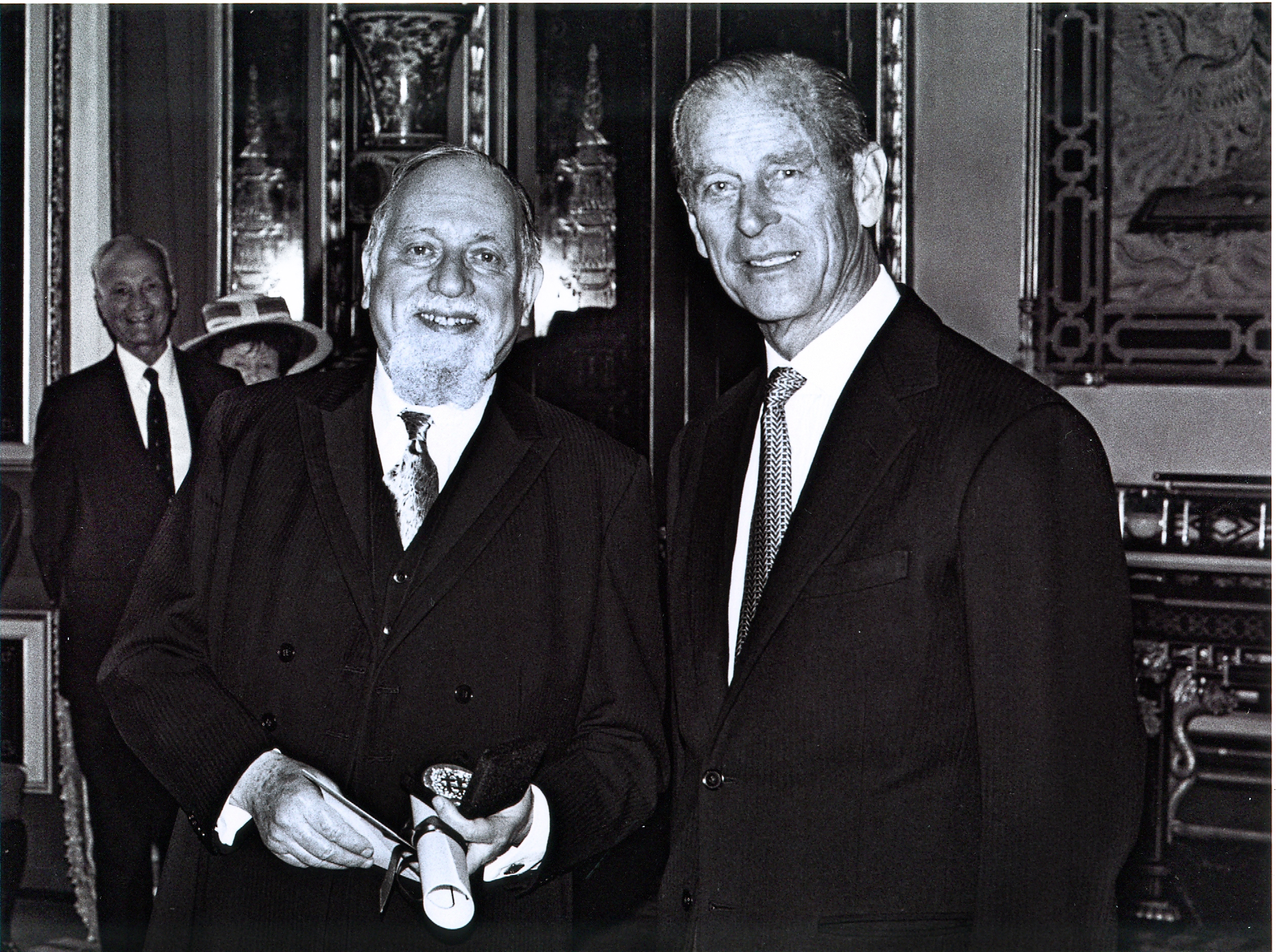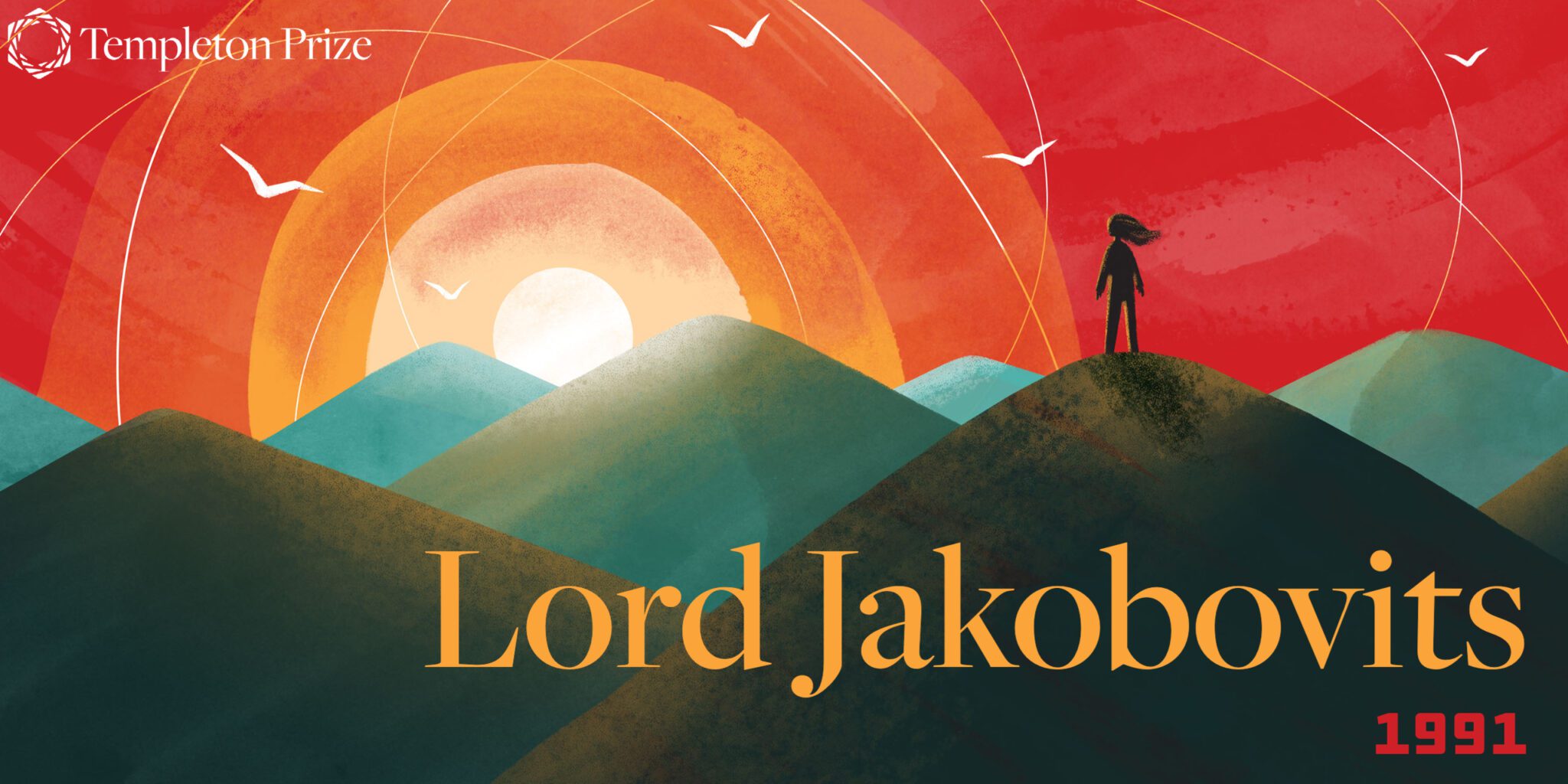In 1973, the first Templeton Prize was given to Mother Teresa. In 2023, we celebrate the 50th anniversary of this award. Over the next 52 weeks, we will highlight each of our laureates and reflect on their impact on the world. From humanitarians and saints to philosophers, theoretical physicists, and one king, the Templeton Prize has honored extraordinary people. Together, they have pushed the boundaries of our understanding of the deepest questions of the universe and humankind’s place and purpose within it, making this (we humbly think) the world’s most interesting prize.
Born on February 8, 1921 in Germany, Lord Jakobovits grew up in a devout Jewish family and developed a deep passion for religious studies from a young age. A prominent religious leader, his commitment to promoting interfaith dialogue and ethical values resulted in significant contributions to the field of Jewish theology and ethics.
At age fifteen, he escaped Nazi terror by fleeing to London as a refugee. An exceptional student, he completed secondary school in London and earned his bachelor’s degree with honors and a Minister’s Diploma from Jews’ College, a Rabbinical Ordination from Etz Chaim Yeshiva, and later, a Ph.D. from the University of London. His extensive knowledge of Jewish theology, coupled with his deep understanding of contemporary ethical issues, laid the foundation for his impactful work.
Jakobovits then became the rabbi of the Brondesbury synagogue. In 1949, at age 27, he was appointed Chief Rabbi of Ireland. A decade later, he was named rabbinate of Hermann Merkin’s Fifth Avenue Synagogue in New York. From 1967 to 1991, Jakobovits served as the Chief Rabbi of the United Hebrew Congregations of the Commonwealth, becoming the first rabbi to receive a peerage and become a member of the British House of Lords. Throughout his tenure as Chief Rabbi, he dedicated himself to fostering understanding and cooperation between different religious communities.
Jakobovits was awarded the Templeton Prize for his relentless pursuit of interfaith dialogue and his teachings of moral ethics in contemporary society. He firmly believed in the importance of building bridges between different religious traditions and promoting understanding among people of diverse faith backgrounds. Jakobovits advocated for the integration of religious principles into public policy discussions, asserting that faith had a crucial role to play in shaping a just and moral society. His efforts in this regard played a significant role in improving interfaith relations and fostering a culture of mutual respect and tolerance.
The Templeton Prize ceremony for Lord Jakobovits, which included a performance by the Toronto Children’s Choir, was held in Toronto on May 27, 1991. Remarks provided by The Right Hon. Jeanne Suavè, The Most Reverend Edward Scott, Dr. Suwanda Sugunasiri, and Christopher Templeton all recognized his indelible mark on the field of Jewish theology and ethics, and celebrated him as a respected voice in the global religious community.
-

1991 Templeton Prize Laureate Lord Jakobovits with Prince Philip, Duke of Edinburgh
"We all must aspire to contribute something which no-one else could give. Our ambition must be to ensure that the world would not be the same without us."
—Lord Jakobovits
“He was audacious and persuasive. He strived to create a climate which would be conducive of the blossoming of faith. His manner never was to force his convictions on others. Respectful of others, he nevertheless took his share of responsibility for sowing the field which was to flourish from his efforts.”
—The Right Hon. Jeanne Suavè
Still Curious?
Learn more about Lord Jakobovitz.
